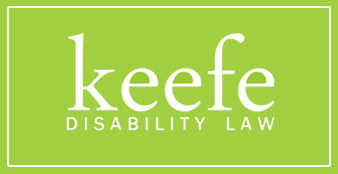Skin disorders affect millions of children throughout the United States. Anything from acne and eczema to genetic abnormalities can cause a child to not only lose confidence in himself, but can also cause debilitating pain and suffering. As a result, the Social Security Administration (SSA), recognizes certain skin disorders for child disability benefits.
Unfortunately, many parents don’t realize that their child could qualify for disability, let alone what to do to get it for him. Therefore, many children who need and deserve SSA help for treatment, don’t get it. Is your child getting what he needs, or is he one of many who continue to feel uncomfortable in their own skin without the medical care they deserve?
Recognized Debilitating Skin Disorders
“Skin disorder” is an extremely vague term which can easily be assumed to cover minor irritations. However, in order for a skin condition to be considered for disability, it has to be severe enough to be debilitating. To eliminate unwarranted applications, the SSA has compiled a list of skin ailments which could satisfy disability requirements. The list includes the following skin conditions:
- Chronic infections of the skin or mucous membranes, such as:
- Cellulitis: bacterial infection affecting the deeper layers of the skin
- Erysipelas: bacterial infection affecting the top layers of the skin
- Folliculitis: an infection of the hair follicle
- Erythrasma: infection most commonly found where skin rubs together, such as between the toes, in armpits, and in the groin
- Dermatitis: severe inflammation of the skin which can cause blistering, oozing, flaking of the skin or the appearance and feel of a hard crust. Although examples of dermatitis include eczema, dandruff, and certain rashes, in order to get disability your child’s condition must be severe and cause some sort of functional inability.
- Hidradenitis suppurativa: chronic skin condition that causes pea-sized to marble-sized lumps under the skin that typically develop where skin rubs together (armpits, groin, between the buttocks, under the breasts, etc.), causing severe pain. In some cases, the rubbing of the skin can cause the lumps to spontaneously burst, releasing foul smelling puss and fluid.
- Genetic photosensitivity disorders: disorders that prevent the skin from being able to withstand sun or ultraviolet light, including phenylketonuria, albinism, familial porphyria, cutanea tarda, xeroderma, erythropoietic protoporphyria and Kindler syndrome. This type of disorder not only prevents access to normal treatments, but it can also limit social interaction and the ability to work as the child gets older.
- Second and third degree burns: excessive scarring and nerve damage caused by burn injuries that can cause psychological withdrawal as well as excessive pain or the inability to stretch the skin around certain areas of the body.
For any of these disorders to qualify, they must have shown resistance to treatment for at least three months and must prevent the sufferer from normal daily functions.
Securing Your Child’s Future with a Simple Call
Don’t waste your time, energy and patience hoping that your child’s application will be approved. If he is suffering from one of the aforementioned conditions, he may deserve disability benefits. Contact us today for a free consultation.
Know someone who is having a rough time getting their disability claim approved? Please feel free to share this page with her via email, Facebook or Twitter. You can also recommend us to your friends, family and coworkers on Google+.
Are You Looking for a Social Security Disability Attorney in Boston, MA?
If you are looking to apply for social security disability, you need to speak with an experienced social security disability lawyer as soon as possible. Please contact us online or call our Natick Office directly at 508.283.5500 to schedule your free consultation.
| Related Links: |


